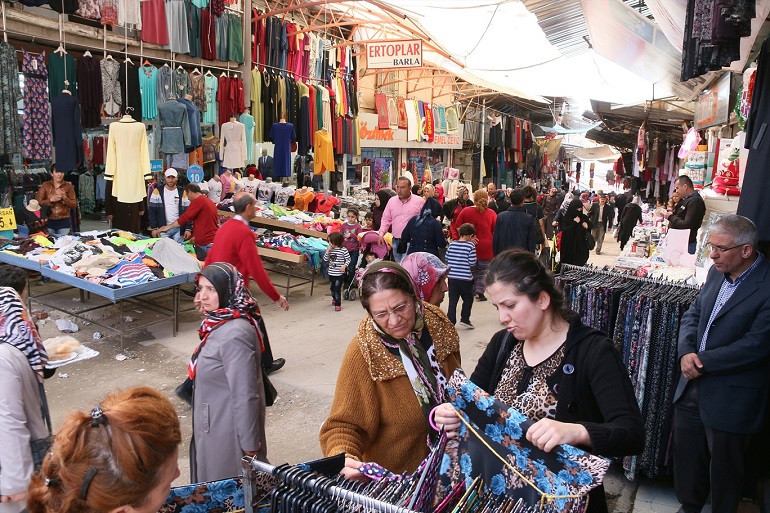
An American mother-of-three has been told she has to leave Turkey, one of the latest incidents in a series of expulsions of Christian expatriates from the country.
Joy Anna Crow Subasigüller, originally from Florida, USA, and her Turkish husband Lütfü were married seven years ago. They settled and started a family in Turkey. Lütfü Subasigüller works as a Protestant pastor in Ankara; Joy has been looking after the couple’s three children who were all born in Turkey.
Their settled, peaceful life as a family changed on 5 June when Joy was told by the Turkish migration department to prepare for deportation with apparently no reason given. “This decision makes me very sad — I love Turkey and the Turkish people,” she told Deutsche Welle (DW): “I have lived here for ten years, they were the best years of my life.”
For the couple, it is impossible to see how Joy could pose a security threat to the state of Turkey, which seems to be the reason for her deportation. She is a stay-at-home-mother with three children, the youngest an infant who still needs breastfeeding. Also, said her husband, “I am a Turkish citizen and so are my three children”. The couple is challenging the decision in court, in the hope they might find out the real reason for banning Joy from staying in Turkey.
It is likely that Subasigüller’s church work is the problem for the Turkish government. Joy is among the more than 50 expatriate Protestant Christian workers who have been denied residence visas or re-entry permits in the past 18 months.
In September last year, 58-year-old Hans-Jurgen Louven heard that the renewal of his long-term residency permit had been denied and that he had to leave the country within ten days. As his wife was in Austria at the time, he had to leave behind their daughter who was in her final year at university. The Christian Louven family, originally from Germany, had been living in Turkey for more than 20 years, working in the tourism industry, and was planning to stay there permanently.
“Systematic pressure”
There was a little break due to the COVID-19 virus outbreak but expulsions have now started again, said Timur Topuz, chair of the Istanbul Protestant Church Foundation, in an interview with the Turkish news site Bianet.
On 24 June American pastor Zach Balon was about to fly from Istanbul airport with his family when he was told he would not be allowed to re-enter Turkey. Balon decided not to travel and appeal the decision.
“We are faced with a systematic pressure targeting Protestant churches,” said Topuz. Under Turkish law the Christian community – as with other religious communities – are not allowed to train their own religious leaders within the education system and they rely on internships and pastors from abroad to serve their churches. “By requiring the pastors of several churches to have a preliminary entry permit, we see that there is an attempt to deprive the churches of pastors,” he said.
Meanwhile, the issue has been raised in Turkish parliament, reports DW. Opposition MP Tuma Celik, from the leftist HDP, challenged the deportation orders, saying they were violations of religious freedom and a threat to family stability. He also asked for a report about past deportations, how many Christian pastors had been expelled and why.
‘N82 code’
Many of those facing deportation, or blocked from re-entry, were given a so-called N82 code, which involves the requirement of a ‘preliminary permit’, linking an entry permit to a previous approval process.
Topuz said no-one understood why people such as Pastor Balon, who has been living in Turkey for years on a valid work permit, were given such a code. “There is no sense in giving him this code. No one knows why they gave it, to be honest. No one gives us a proper explanation about that,” he said.
In their defence, the Turkish authorities said in court that the N82 code did not mean a ban on entering the country.
“However, in practice, all of those who have fallen victim to this situation and applied for a visa have had these applications rejected. Although N82 isn’t an entry ban de jure it is a de facto entry ban in Turkey,” said the 2019 Human Rights Violations report by the Turkish Association of Protestant Churches.
The report also details how 35 Protestant Christian workers were refused entry to Turkey last year. Among them were 17 from the US, 6 from the UK, 3 from Germany, 3 from South Korea, 2 from Iran and 1 each from Spain, Finland, Mexico and Brazil. Together with their families they represented more than 100 people.
Some 170 small and large churches are part of the Turkish Protestant community with the majority located in Istanbul, Ankara and Izmir.
The high-profile case of US pastor Andrew Brunson drew attention to the small Protestant community in Turkey. Brunson was accused of espionage and held in custody for two years, before he was released in October 2018.
In their 2018 report the Association of Protestant Churches said that public hate speech against the small Christian community had increased since Brunson’s case. In 2019 fewer incidents were recorded but the problem was still prevalent, its 2019 report said.